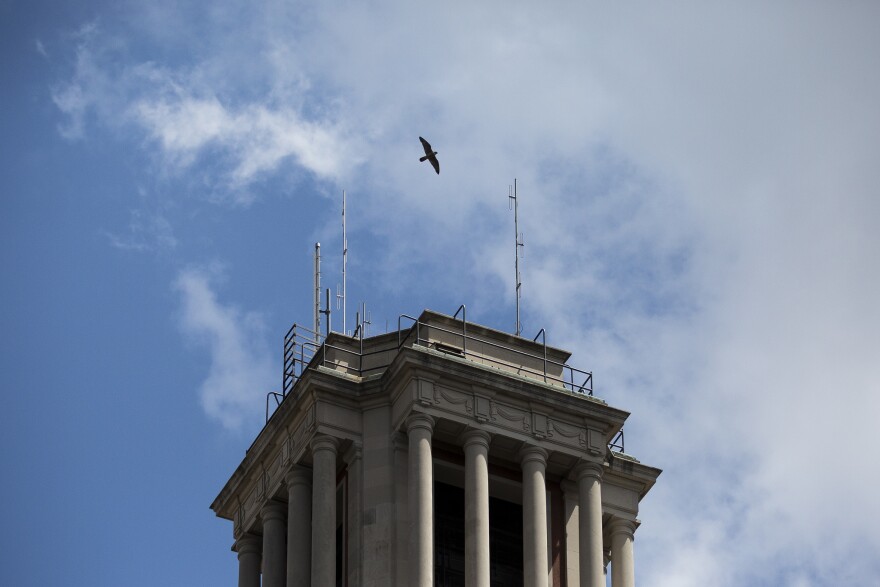The only peregrine falcon that lives year-round in Central Texas makes her home in a wooden box on the UT Tower. More than a month ago, the bird laid a clutch of eggs. But, as the weeks passed, it became unlikely that the eggs would hatch. So, the university agreed to remove the eggs for research.
That job went to Neil Crump, manager of UT's Construction Services. Last Friday, he ascended the Tower with safety gear and a camera phone. He first lowered the phone into the nest, to make sure the eggs were intact. He then made the harrowing voyage to the box itself, with the falcon diving down on him repeatedly.
“There she goes. Now she’s starting to swoop on him!” Chris DuCharme, a photographer who visits every day to check up on the falcon, said from the ground.
A few minutes later, Crump emerged from the tower, soaked in sweat. In his hands, an egg carton containing four falcon eggs.
In the coming days, the eggs will be transported to Texas A&M, where researchers can find out why they didn’t hatch and test their shell strength.

“One of the big reasons why [falcons] became rare, was due to pesticides which made their eggshells so thin that they would break while the mother was incubating them,” said Bruce Calder, a self-described “falcon aficionado” who will transport the eggs. “If these eggs can be collected and studied, they can determine what current eggshells are doing.”
DuCharme said he plans to keep an eye on the falcon as she readjusts, and Crump will work on getting a webcam installed in the nest.

“Perhaps next year we’ll be able to watch all this from our computers,” he said.
It would be more convenient, but not nearly as exciting.




